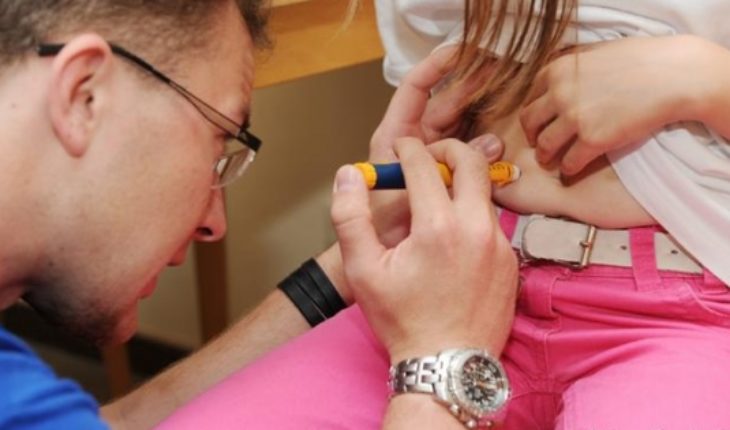type 1 diabetes has nothing to do with l a poor diet, even with physical passivity. It is an autoimmune disease that can also affect young people. “Most of the children get sick when they are very small or before puberty”, explains Professor Andreas Neu. The pediatrician is in charge of the Department of Pediatric diabetology at the University Hospital in Tübingen.
Different hypotheses of the causes of the increase in type 1 diabetes in children and adolescents are not clear. There are several hypotheses: lifestyle and the environment have changed. Us, and of course our children, we eat differently. “We can not blame the increase of this disease to a single cause,” says Neu. Type 1 diabetes has much in common with many other autoimmune diseases.
Insulin is a hormone vital for human beings.
First symptoms “If a child suddenly begins to drink plenty of fluids and urinating frequently, then we must take the pediatrician”, advises Neu. “These are the typical symptoms: small performance is less and lose weight”, says the doctor. Extreme thirst arises because the body can no longer burn glucose and convert it into energy. Glucose is then ejected through the kidneys. The body is dehydrated and suggests, through a strong sensation of thirst, you need liquid.
An important hormone in type 1 diabetes, there is an absolute lack of insulin. This hormone, which reduces the blood glucose, should be supplied to patients from abroad. With this disease, the body’s immune system attacks beta cells and destroys them. They are in charge of recording sugar levels in blood, producing insulin and release it. If the pancreas is damaged and already can not produce their own insulin, blood sugar level increases. Long-term, increased glucose levels can in turn damage different organs. It can lead to severe metabolic disorders and other diseases.
Hyperglycemia and hypoglycemia excess sugar in blood makes, in the long run, weaken blood vessels and sediments to form. In extreme cases, the organs are not provided adequate blood. This can lead to problems, such as blindness, kidney failure or pictures which make necessary amputations. On the other hand, there may also be a very low blood sugar level, because in the body there is too much insulin, has been a high physical activity or the patient consumes very few carbohydrates. Hypoglycemia is considered the value of less than 60 milligrams per deciliter. Symptoms include sweating, knees trembling, palpitations, fear and aggression.
For young people it is not easy to have type 1 diabetes: the disease requires a lot of discipline.
Therapy of lifetime if the diagnosis in children or adolescents is type 1 diabetes, they need attention and special support, because this affects all areas of everyday life. Young people need to understand that it is a chronic disease and must take medication every day. “The child’s daily life is strongly influenced, because the dose of insulin must adapt to different situations and circumstances,” said Neu. “They need to regularly monitor their blood levels and inject insulin,” adds Neu.
In addition to medical care, young people also receive psychological support. “Our team includes a social worker and a psychologist. Psychological care is part of the treatment, there are regular appointments at the consultation on diabetes and we offer teens the ability to talk to us,”said Neu. In these meetings are clarified issues that affect the majority of diabetic children, as for example: “how I act with my diabetes in public?”.
A critical phase is puberty. “In this period of life, teenagers are aware that they have a chronic disease at puberty, nobody wants to be different from their peers. In consequence, diabetes greatly bothers”, argues Neu. In the worst case, they can neglect or ignore both blood glucose measurements such as insulin shots, which could be dangerous to your health.
All this could be avoided if there were more people aware that “nobody is responsible or co-responsible for type 1 diabetes”, clarifies the diabetologist and added: “should not be overweight or to the lack of physical exercise, it is a matter of destiny”.





